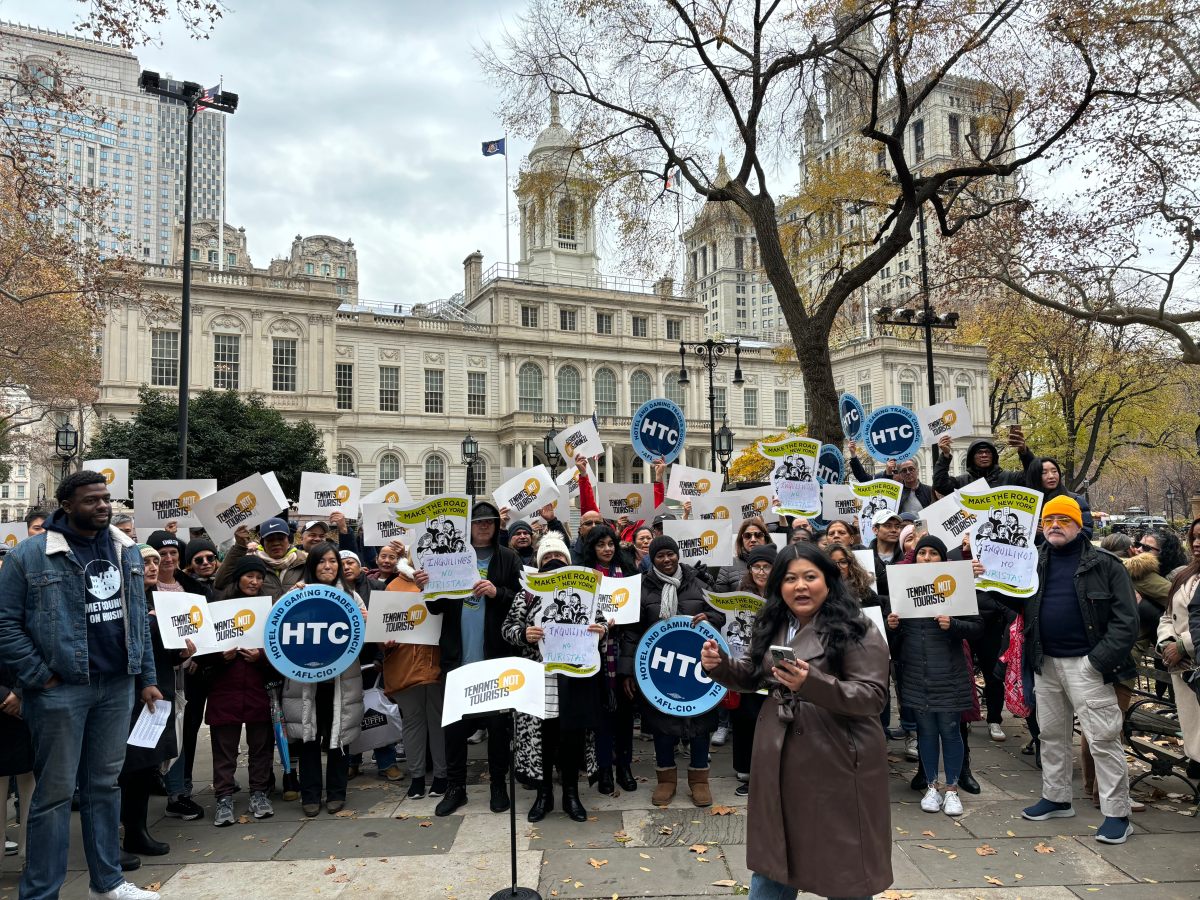By Naeisha Rose
Tenants of the Interline three-quarter housing complexes in Jamaica, Queens and Brooklyn have made some headway in their fight to receive Special Exit and Prevention Supplement vouchers from the Human Resources Administration so they won’t become homeless, according to an organizer.
The directors of Interline, a substance abuse treatment center, allegedly used its clients to steal $2.3 million in Medicaid kickbacks by also providing them with housing that turned out to be substandard, according to state Attorney General Eric Schneiderman.
Robert H. Corrado and Kristina Corrado, a father-daughter duo from Long Island, were indicted in July after allegedly forcing tenants seeking below-market housing into attending substance abuse treatments, whether they were addicts or not, according to Schneiderman’s office.
“Medicaid cannot serve as a bank account for criminals who have no regard for the well-being of their fellow New Yorkers,” Schneiderman said. “My office will continue to fight for the integrity of the Medicaid program to ensure that our tax dollars are not wasted – and instead put towards helping our most vulnerable citizens, as intended.”
The “Care Houses” the tenants lived in were operated by the daughter, who managed Interline’s outpatient program, said the attorney general.
“The overlap in staff and operations between Interline’s outpatient treatment program and its Care Houses created a de facto residential treatment program, that neither entity is licensed to operate,” Schneiderman said. “Residents were regularly shared by Interline staff with staff at the Care Houses, and residents who were not compliant with mandatory treatment requirements set forth by Interline were evicted from the Care Houses.”
Denise Romero Gonzalez, a tenant organizer for the Three-Quarter House Tenant Organizing Project, accused the Corrados of housing those fighting addictions with drug and alcoholic abusers in order for them to fall off the wagon and be in constant need of their services.
“Landlords will force people to go to a specific substance abuse program and the substance abuse program will refer any clients that they get who are in need of housing to a three-quarter house,” Gonzalez said. “It’s like a conveyer belt.”
In late July, the tenants wrote letters to HRA Commissioner Steve Banks requesting SEPS vouchers, and in August they rallied outside a HRA office to let their voices be heard, according to Gonzalez. SEPS provides rapid rehousing to help keep people out of the shelter system.
On Sept. 6, Gonzalez and other tenant organizers entered talks with the commissioner and were informed residents will be provided with SEPS on a case-by-case basis and that single individuals would receive $215 in public assistance, according to Lourdes Centeno, a spokeswoman for Banks.
“We are committed to work with Interline residents and advocates to find viable alternatives for them and we are engaging with the state to identify a comprehensive long-term solution for them and all New Yorkers in similar situations,” Lourdes said.
Reach reporter Naeisha Rose by e-mail at nrose



































